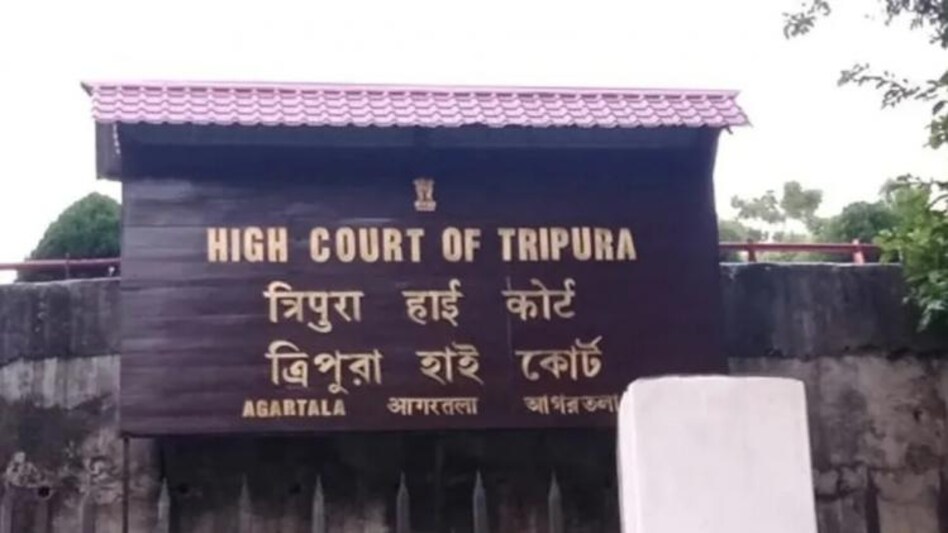A.K. Yog, J.@mdashThis is a landlord petition praying to this Court for issuing a writ of mandamus directing opposite party No. 1/Prescribed Authority for quick disposal of the release application (Release Case No. 129 of 1999) filed u/s 21(1)(a) of U.P. Urban Buildings (Regulation of Letting, Rent and Eviction) Act. 1972. U.P. Act No. XIII of 1972 (for short called ''the Act''). Petitioner who is owner of the house No. 111/428, Ashok Nagar, Kanpur and is landlord vis-a-vis his tenant Sardar Harbhajan Singh, Respondent No. 2, who occupies a portion of the said house described in the release application. The release application has been filed on the ground that he was aged about 65 years and resides along with his wife aged about 62 years on the first floor of the said house. The landlord claimed to be the Consultant Civil Engineer and submitted it was very inconvenient and caused physical hardship in climbing stairs for meeting his client (para 4 of the release application (Annexure-1 to the writ petition).
2. Petitioner has annexed photocopy of order sheet of the case. Perusal of the order sheet indicates that proceedings are being taken leisurely. It is natural that tenant, who is sought to be vacated will not be keen to have the proceedings go swiftly and it is natural tendency to ensure delay in the disposal of the case. This Court is conscious of the fact that the lower courts are awfully occupied and working under great stress. The factors are many folds but this does not justify grant of adjournments lightly and even at the drop of hat.
3. Rule 7(7), framed under Sections 10, 18 and 22 of the Act, read:
As far as possible, a revision u/s 18 shall be decided within one month, an appeal or revision u/s 10 shall be decided within two months, and an appeal u/s 22 shall be decided within six months from the date of its presentation.
4. Rule 15(1) and (3), framed u/s 21(1)(a) of the Act read:
(1) Every application referred to in Sub-rule (1) shall, as far as possible, be decided within two months from the date of its presentation. Disposal of release application filed by landlord, it is statutory obligation of the Court.
(2) ....
(3) Every application referred to in Sub-rule (1) shall, as far as possible, be decided within two months from the date of its presentation.
5. Hon''ble Dr. A.S. Anand, Chief Justice of India, in his letter dated December 22, 1998, addressed to all the Chief Justices of the High Courts, referred to ''laws delay''-and noted "we should take every possible step for early disposal of old cases so that the agony of the litigants is brought to an end...conveying unequivocally to the parties that such old matters cannot be allowed to remain pending indefinitely and bring disrepute to the Courts. No party to the litigation can be permitted to have any vested right in slow motion justice. ...Let 1999 be an "Year of Action" towards disposal of old cases." He advised old cases to be decided on day to day basis.
6. In another letter dated April 22 of 1999, the Chief Justice of India with reference to "International Year of Older Persons" noted "In India, there is high incidence of litigation concerning property and inheritance, two of the most common issues in which elderly persons are generally involved apart from landlord-tenant disputes. Besides property and inheritance matters, service matters, such as pension and retiral benefits also concern older people...".
The problem gets compounded by the inordinate delay in disposing of the matters of older persons in the Courts and in many matters the litigants unfortunately dies even before the case is finally settled. You will appreciate that the elderly people deserve to be attended by the legal system of the country somewhat on priority basis. Therefore, there is a need to evolve a system which may ensure timely disposal of their matters pending in the Court....
7. Adjournments in the present ''Judicial delivery system'' are like fire. If we sit with our back towards it, then for sure, in future we shall be sitting on our blisters.--Bible says: "Do not let evil conquer you, but overcome evil with good."
8. Mohammad Ali said: "It is poor statesmanship to slur over inconvenient realities." Court should not over look or ignore realities, if it desires the public to continue to have faith in the system.
9. This Court would not like to believe that sensitivity to human hardship in our Judicial system has been lost. No Court can dispense Justice unless it is alive and sensitive to human sufferings and takes note of realities.
10. From the scheme contemplated under the Act and the Rules quoted above, it is abundantly clear that Legislature did mandate that tenant-landlord dispute be decided with utmost expediency.
11. Expression "as far as possible" and "so far as possible" in aforequoted rules, do imply that Court must decide the cases referred therein within the time prescribed by the Legislature unless otherwise not possible.
12. Expression "as far as possible" came for interpretation in
13. When a Court grants adjournment, it is, expected that it shall record reasons, in brief, to indicate that adjournment was imminent and not avoidable.
14. By allowing adjournments lightly, unscrupulous litigant is encouraged while Court fails in its duty to protect the other side from exploitation, avoidable harassment and frustration.
15. In view of the above, it is desired that all the sub-ordinate Courts, dealing with rent control matters, be required to bear in mind the aforesaid observations.
16. This Court is not inclined to issue a writ of mandamus to command court below to decide a case within a specified period inasmuch as Court below dealing with the cases of landlord and tenant is the best Judge of its diary and conscious of other circumstances/situation under which it has to deal with its docket but, while granting adjournment it must justify its order.
17. Courts must not succumb to delaying tactics by granting adjournments in lighter vein. By asking for adjournment for the sake of adjournment and the Judge granting them very lightly, both became part of very vicious circle. The Bar has to contribute its might. Adjournment, where it becomes unavoidable may be sought, but not for the sake of it; not at the drop of a hat. Look at the plight of the poor litigant. What happens to him. Who pays for loss of time so far as he is concerned? We must avoid all unnecessary adjournments.
18. One way to check frivolous/manipulated adjournment is to impose real and adequate costs ; so that concerned party should take up the case with all seriousness at its command and give priority to such cases.
19. Writ petition dismissed in limine subject to the observations made above.
20. No order as to costs.

